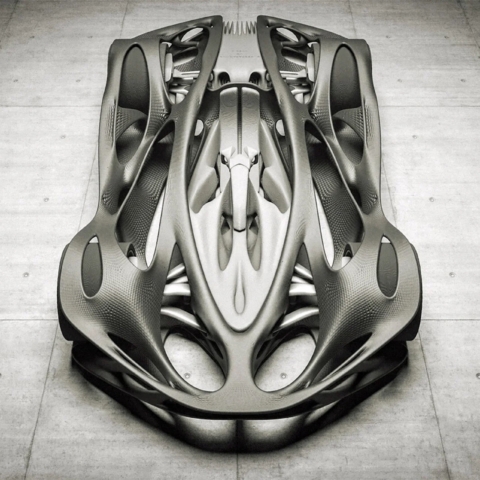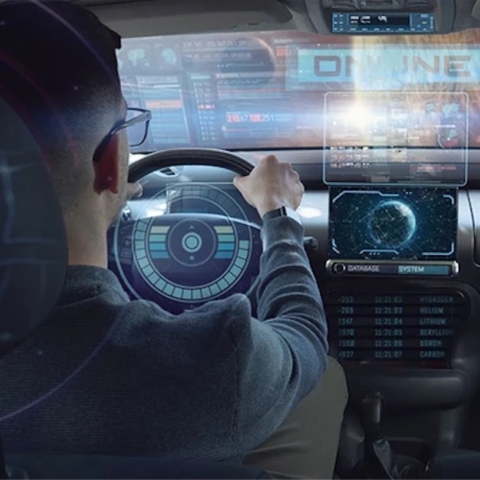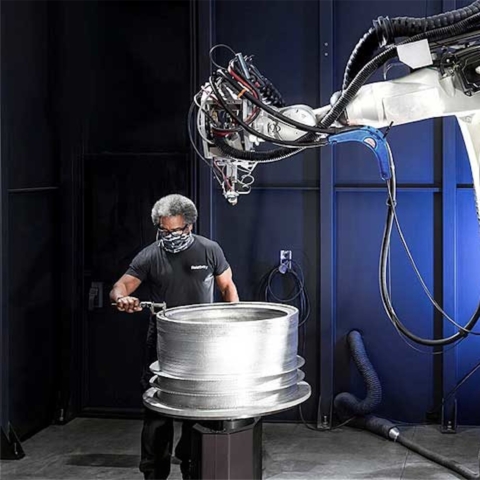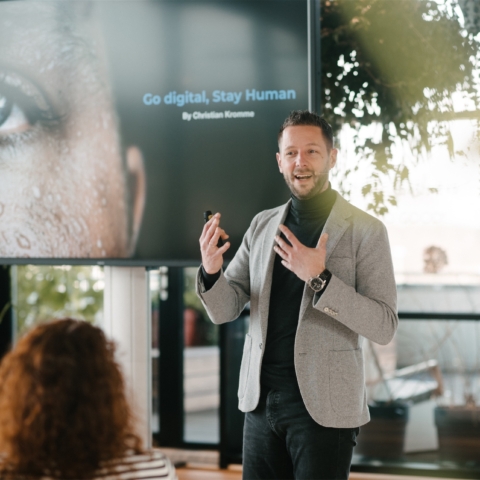Would you like to get notifications from Christian?
In the future, 3D printing and generative design will allow for products to be designed in a more decentralized manner, and production will take place closer to the customer and fully on-demand. 3D printing technology will also allow for more customization and personalization of products. Advanced sensors and edge computing will be used to learn how products are used on a day-to-day basis during their lifetime.
This information will be sent back to the designers and manufacturer for continuous improvement. This feedback loop will result in products that are continuously getting better and better. The entire production pipeline will be robotized, and hard skills that are currently done by human workers will be automated by smart machines. This means that humans will need to develop new skills to stay relevant in the age of automated manufacturing.
Customers

The impact of 3D printing and generative design on people and the planet will be profound. There will be a shift from mass production to personalized production. This will result in products that are better suited to the needs of the individual customer. 3D printing technology will allow for more customization and personalization of products, which will lead to a decrease in waste.
Advanced sensors and edge computing will result in products that are continuously getting better and better, which will lead to a decrease in obsolescence. The entire production pipeline will be robotized, which will lead to a decrease in the need for human workers. This means that there will be a need for humans to develop new skills to stay relevant in the age of automated manufacturing.

Products will be co-designed with AI algorithms, 3D printed on-demand, and personalized for each customer. With AI-powered generative design tools, we can design products as nature does. The products will be 3D printed on-demand using additive manufacturing technologies.
They will be personalized for each customer, and the customer will be able to choose from a wide range of customization options. The products will be continuously improved by sensors and edge AI that learn how they are used during their lifetime.

Like software products now products will also be connected to the Internet of Things and continuously learning and improving. They will have "brains" and "nervous systems" that allow them to gather data about their environment and how they are being used.
This data will be sent back to the designers and manufacturers so that they can continuously improve the products. The products will also be 3D printed on-demand, which means that there will be no need for inventory or warehousing.

3D printing will allow for more customization and personalization of products. With 3D printing, you will be able to choose from a wide range of customization options. You will also be able to choose the materials and colors that you want your product to be made from.
3D printing will also allow for products to be 3D printed on-demand, which means that there will be no need for inventory or warehousing. 3D printing will also allow for products to be 3D printed at your local 3D print hub, which will have a massive impact on logistics and transportation. And the delivery will be almost instant.

When you think of a keynote, what comes to mind? A dry, boring presentation that is only useful for corporate types? If so, then you are in for a surprise. Christian Kromme is a Keynote Speaker who will change your mind about keynote presentations. His keynotes are highly visual and engaging, and he can tailor his message to fit any audience.
Whether you need a keynote for a live event or something that can be viewed online or even pre-recorded, Christian has you covered. His presentations are truly inspiring and thought-provoking, and they will open your eyes to the world of tomorrow. If you are looking for a Keynote Speaker who will challenge the status quo and provide disruptive insights, then Christian Kromme is the right choice for you. Contact him today to learn more about how he can help your organization achieve its goals.
Christian is a futurist and trendwatcher who speaks about the impact of exponential technologies like AI on organizations, people, and talents. Christian tailors his presentations to your audience's specific industries and needs.



Our world is changing at an exponential rate! A big tidal wave of digital transformation and disruption is coming at us fast. Many organizations see this wave as a threat and experience stress, but there are also organizations that just see this wave as an opportunity.

Imagine sitting with just 10-15 fellow executives at a premier location, gaining clarity on the impact of AI on your industry while enjoying an exquisite dining experience. These are not just meetings—they are transformative moments that will shape the future of your organization



In the future, 3D printing and generative design will allow for products to be designed in a more decentralized manner, and production will take place closer to the customer and fully on-demand. 3D printing technology will also allow for more customization and personalization of products.


The agricultural industry is ripe for disruption. Robotics, AI, and IoT are all technologies that have the potential to radically transform the way we grow food. In combination with vertical farming, these technologies could increase the efficiency and quality of agricultural products.

A human-centered society is one that puts people first and where technology is used to unite and empower people. It is a society that values biological life and dignity above all else. It is a society that recognizes the importance of human relationships and works to strengthen them. In a human-centered society, all members of the community are valued and treated with respect.


The future of healthcare is here. New technologies like AI, IoT, big data, and smart sensors make it possible to become the CEO of your own health. Imagine that your phone can listen to your voice and AI algorithms can detect small nuances in the tone of your voice that indicate specific diseases.
